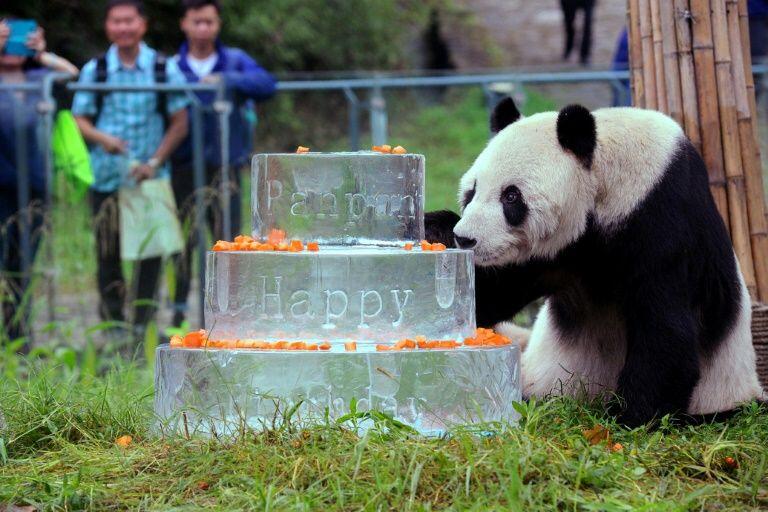On the 6th of September 2016,the International Union for Conservation of Nature (IUCN) declared that giant pandas are no more endangered species. “The decision to downlist the giant panda to ‘vulnerable’ is a positive sign confirming that the Chinese government’s efforts to conserve this species are effective,” the IUCN noted in its assessment. This is considered great news, regarding the animal, that is considered one of the symbols of conservation. The sad news today is that the world’s oldest male panda, has died.
Pan Pan (which means hope in Chinese), died aged 31, with more than 130 descendants, a quarter of all the captive-bred pandas on the planet. That sweet Panda was a prolific father, siring many cubs over the years that have gone on to have offspring of their own.
Announcing his death, the China Conservation and Research Center for Giant Pandas called it “heart-wrenching news” and said the “hero father” had been suffering from cancer.
“In the past three days, Pan Pan’s condition rapidly deteriorated, losing consciousness and the ability to move and eat,” it said on a verified social media account.
“He left us forever after rescue efforts by medical personnel proved futile. We hope that there is no more suffering from illness in heaven.”
Pan Pan was born in the wilds of the southwestern province of Sichuan in 1985, but lived in captivity from just a few months old.
“Pan Pan was the equivalent to about 100 human years,” Tan Chengbin, a keeper at the conservation facility in Sichuan where he was kept, told the official news agency Xinhua.
Habitat loss and low reproductive rate, are two key contributors in the Pandas’ status as vulnerable on the International Union for the Conservation of Nature’s (IUCN) Red List of threatened species.
While Pandas in the wild have an average lifespan of around 20 years, those in captivity generally live longer. The most recent estimates show a population of 1,864 adult giant pandas in the wild, up by more than a sixth over a decade, with experts crediting nature reserves, bamboo planting, farmer subsidies and commercial programmes for the increase.











